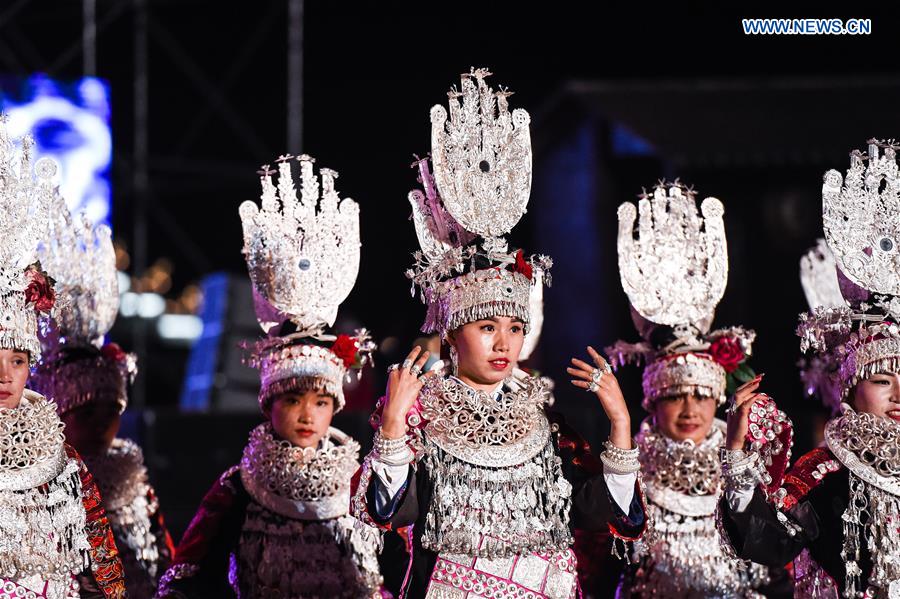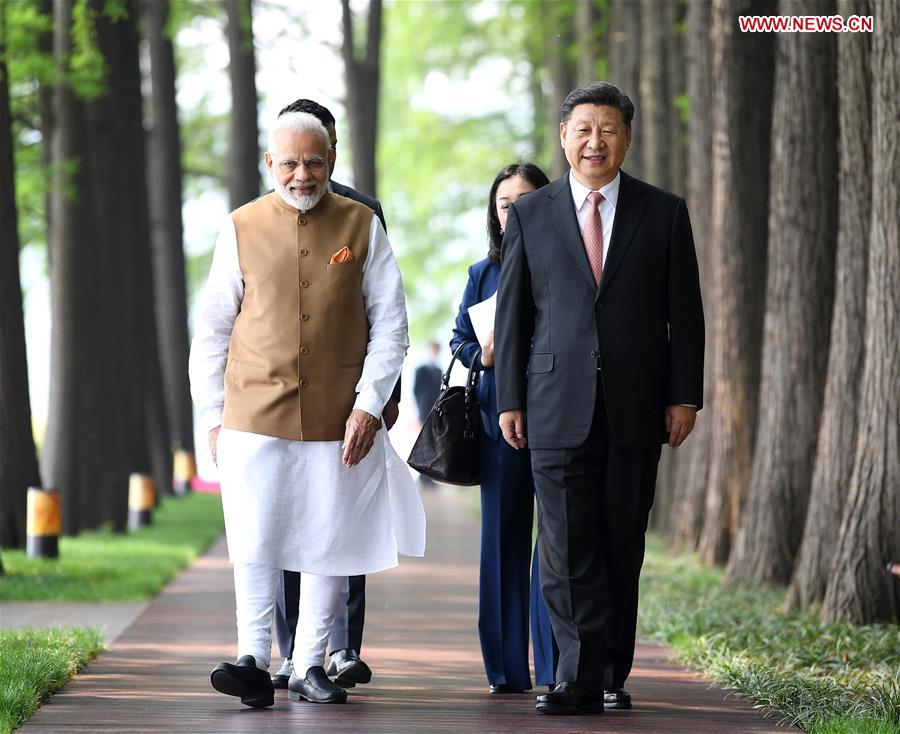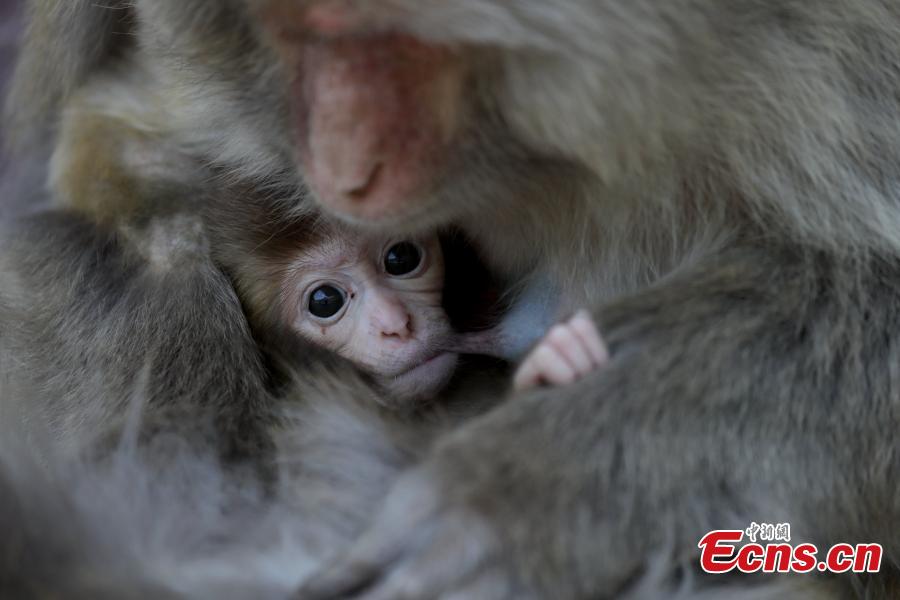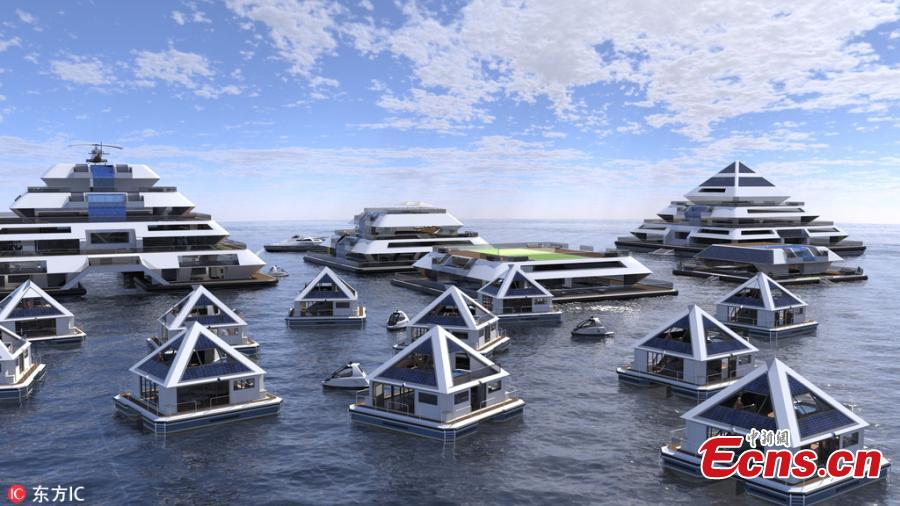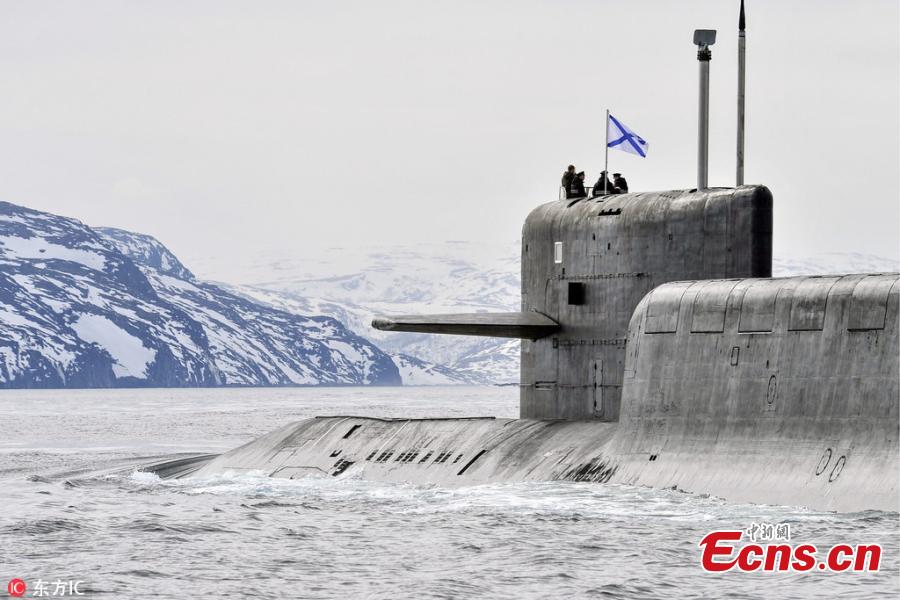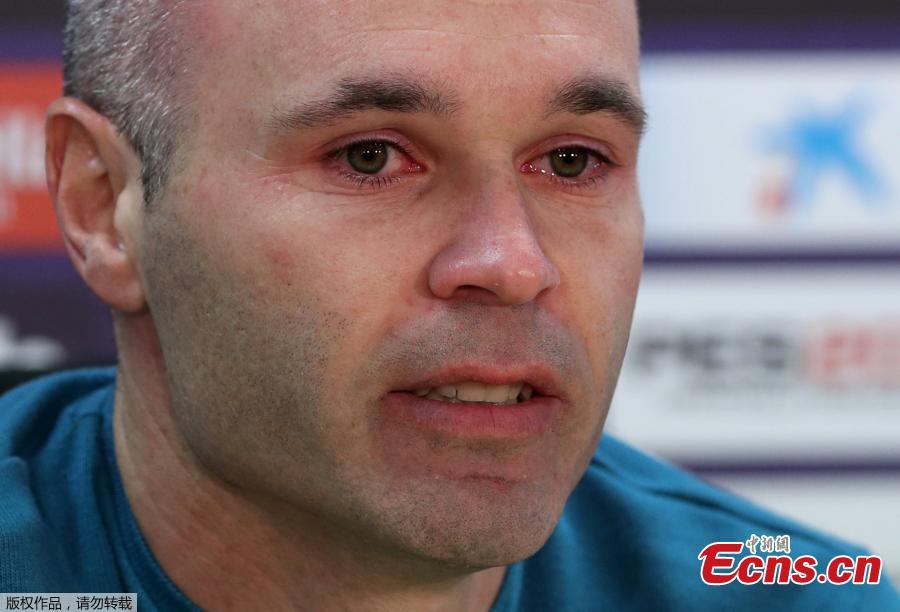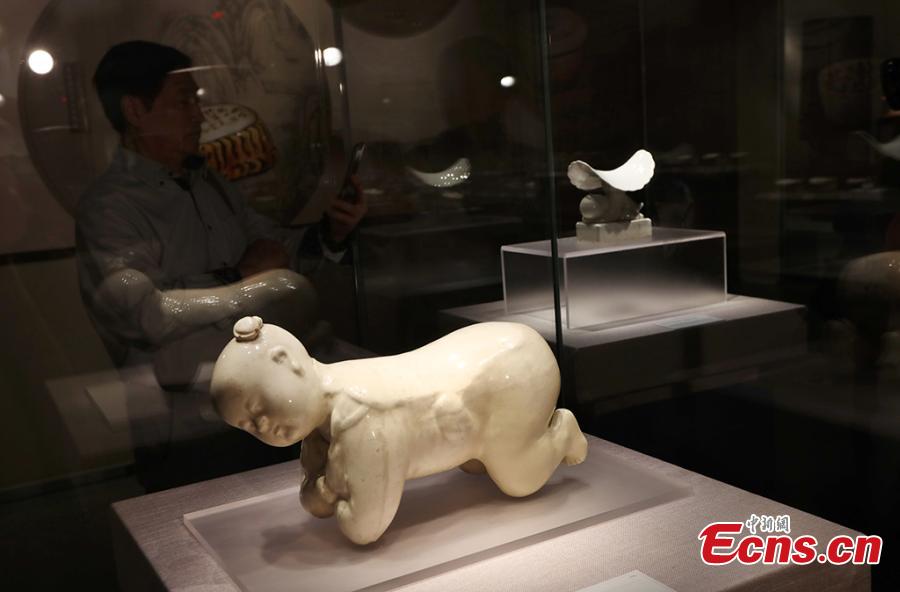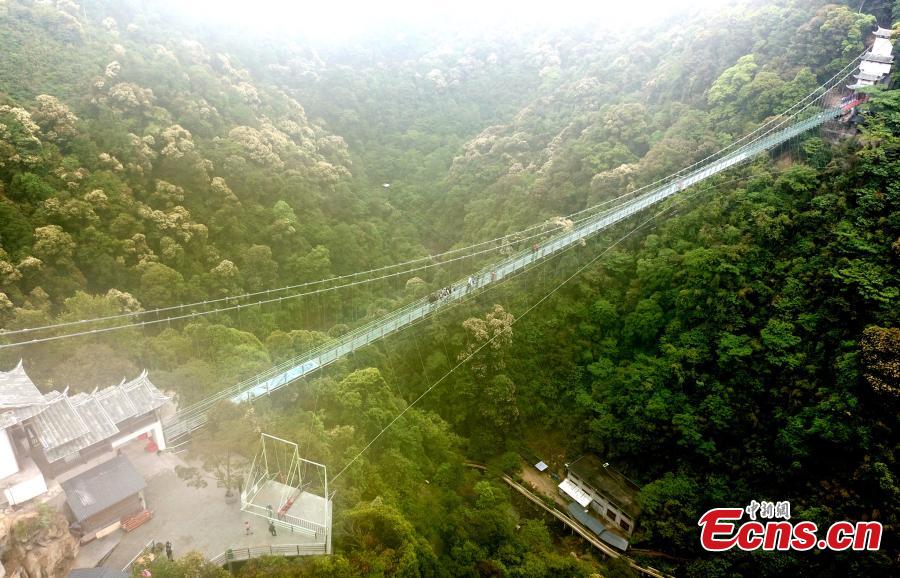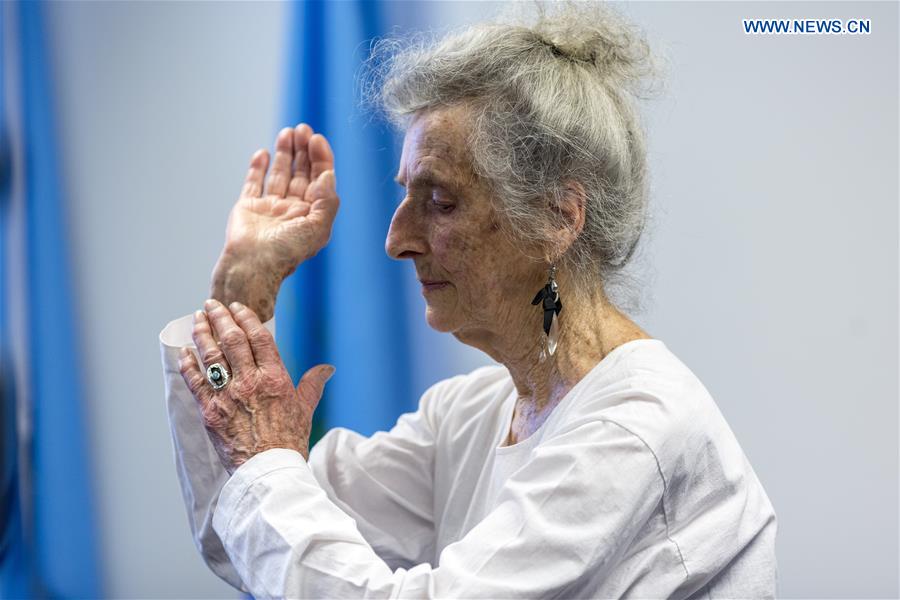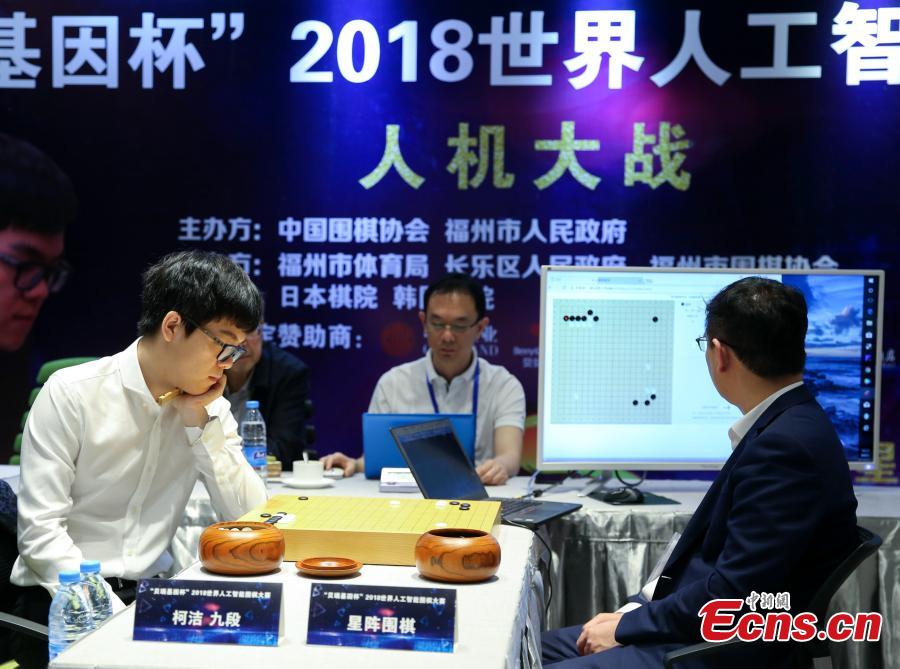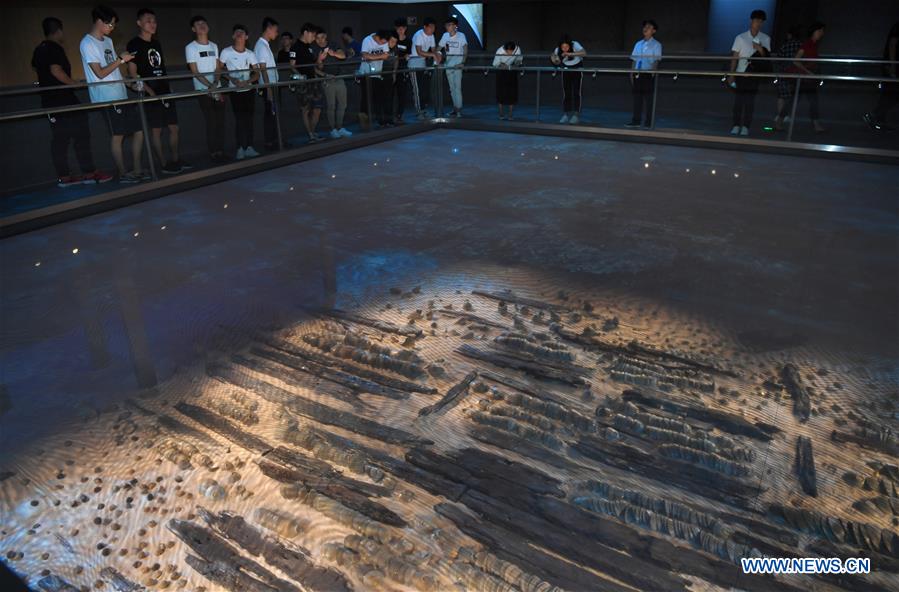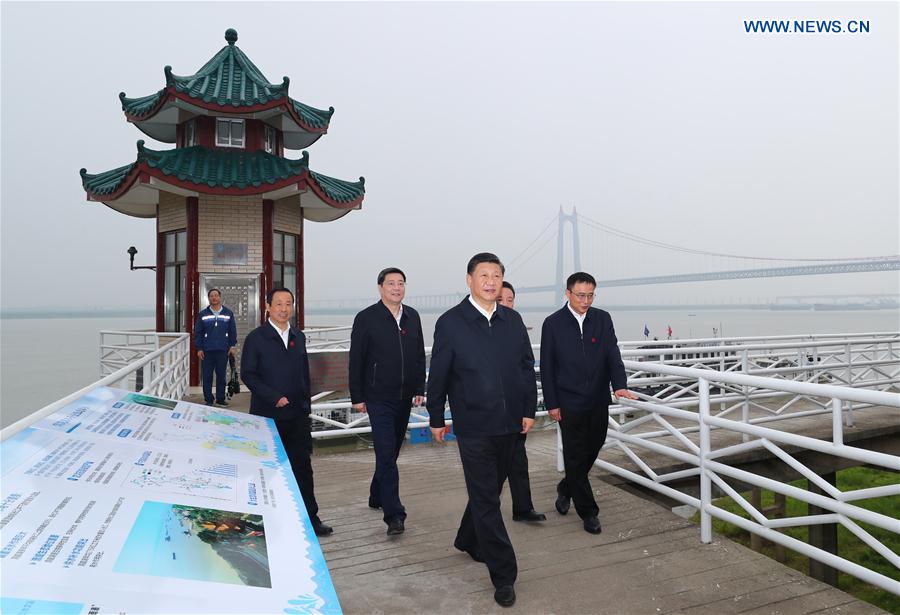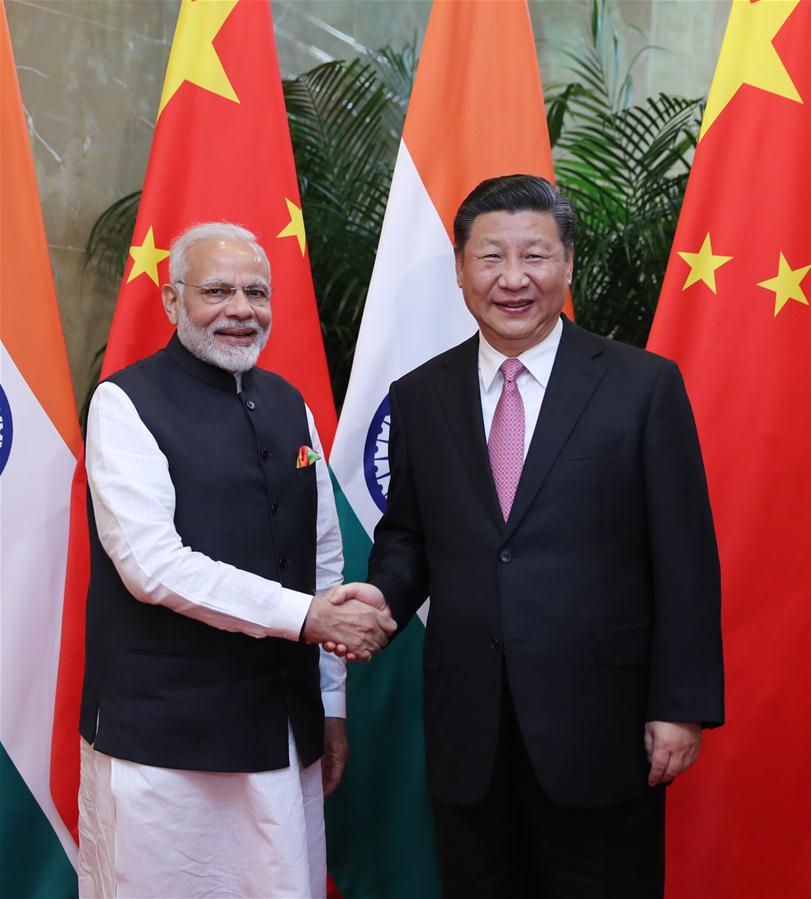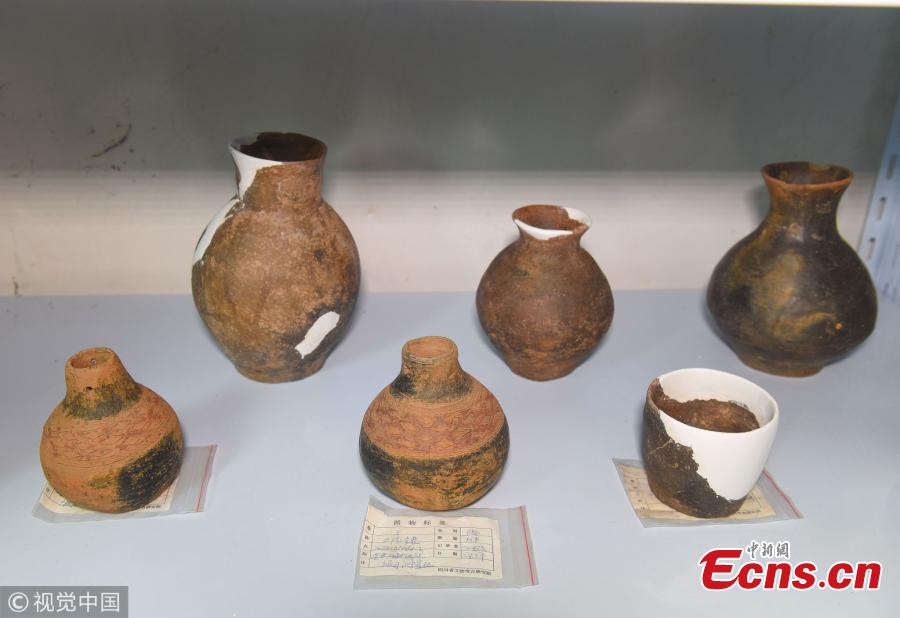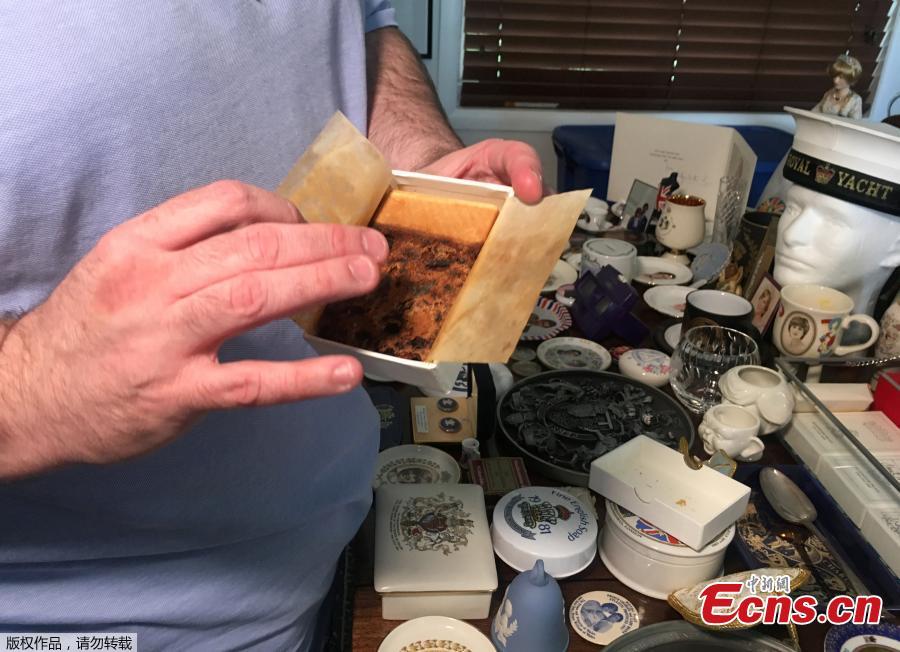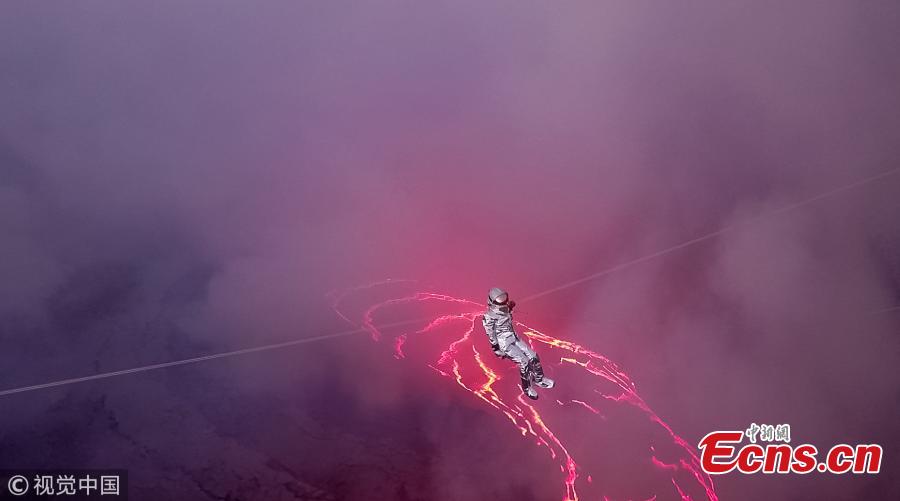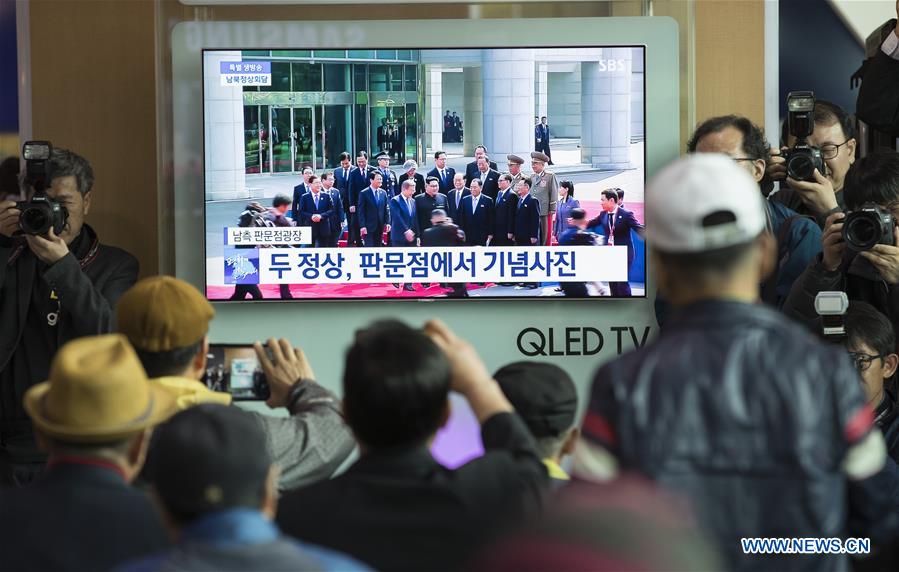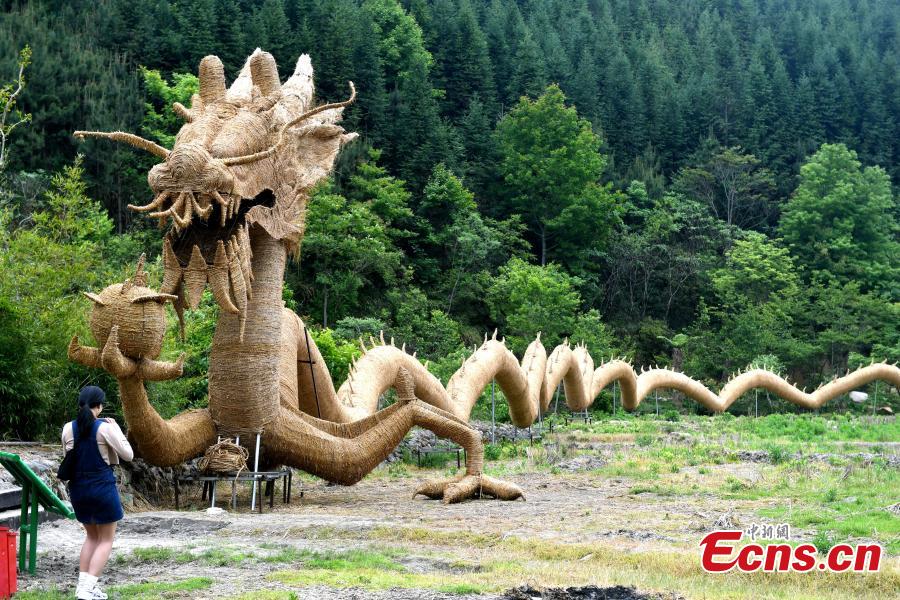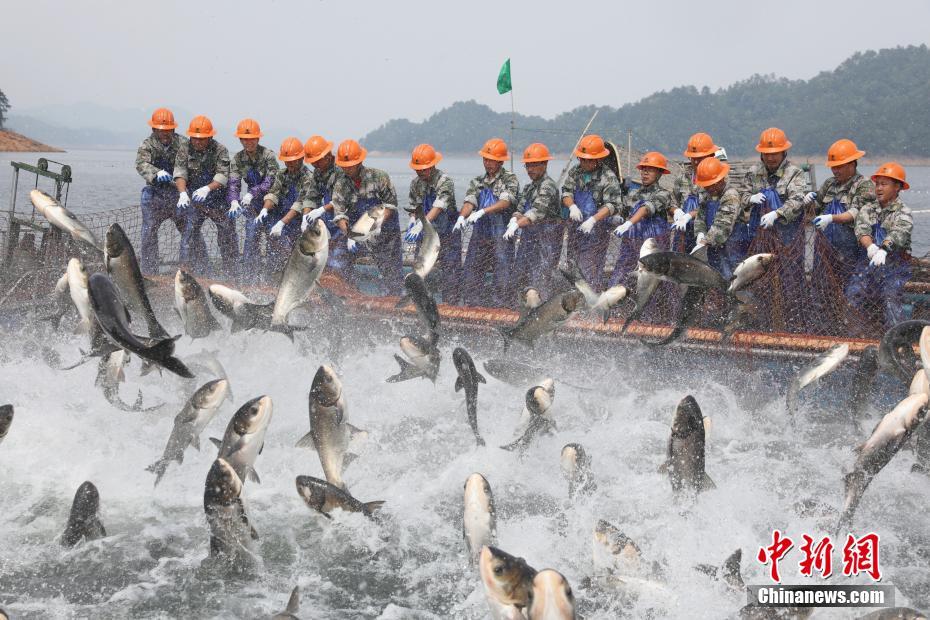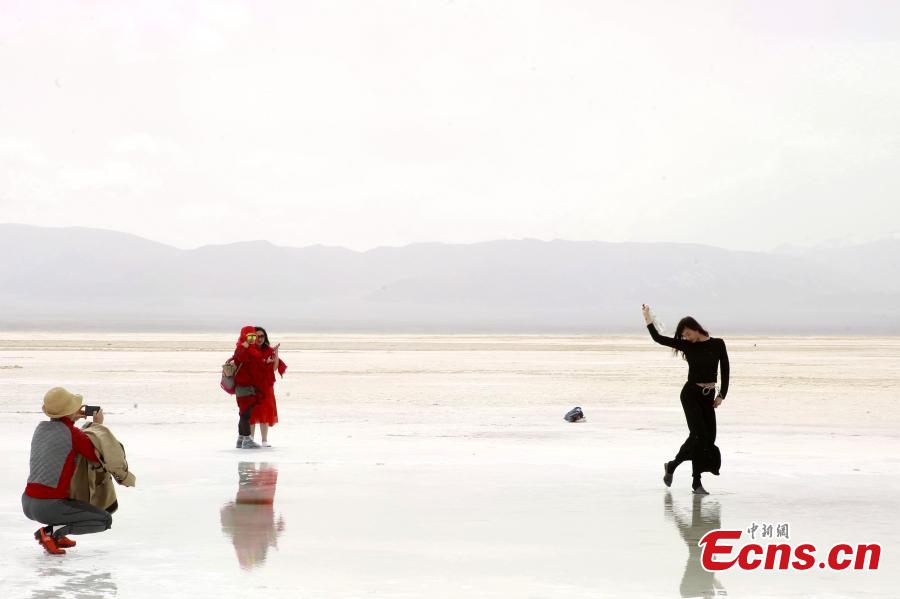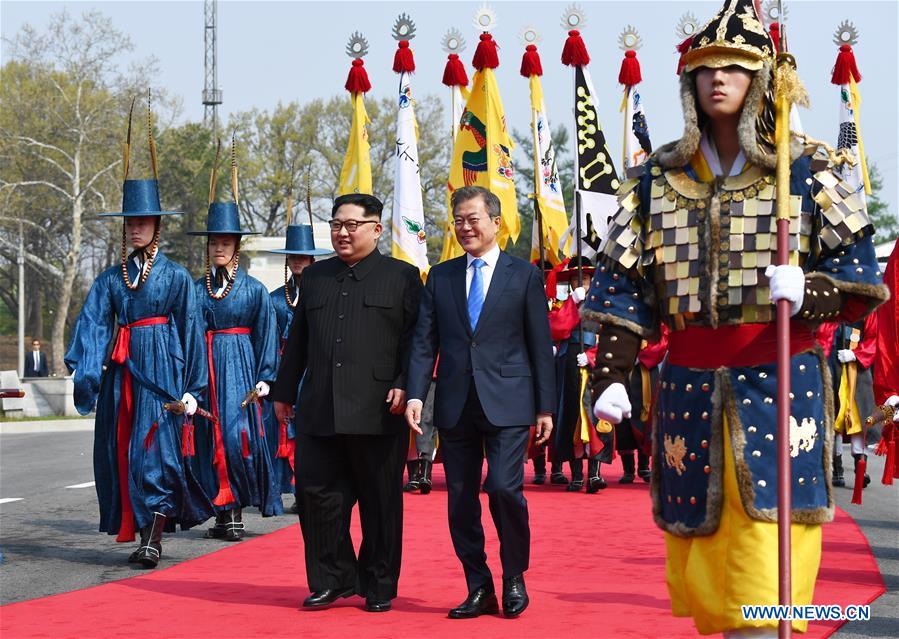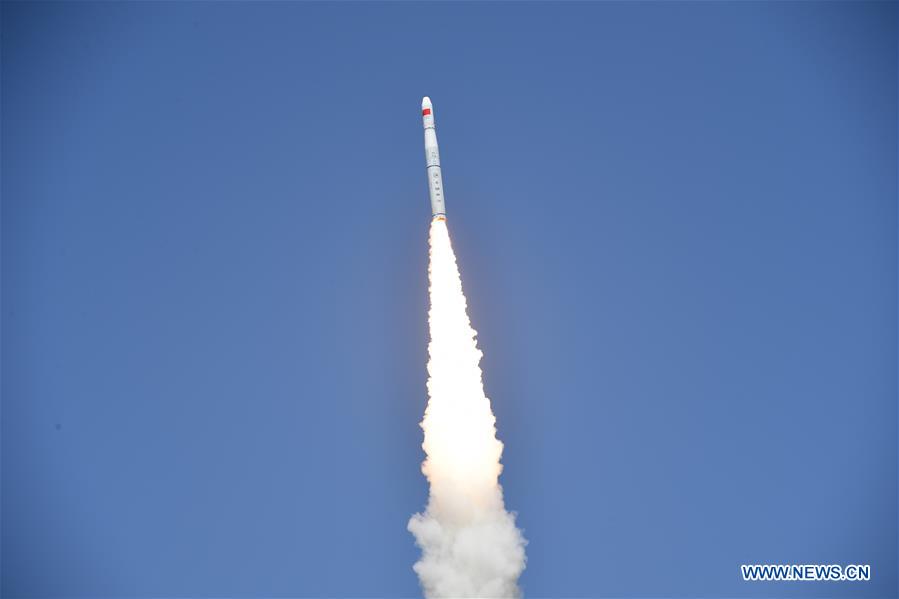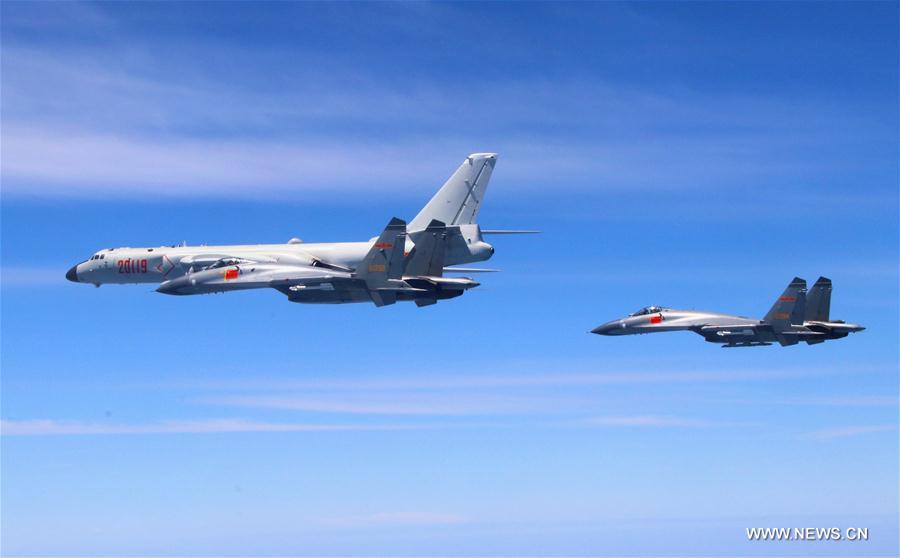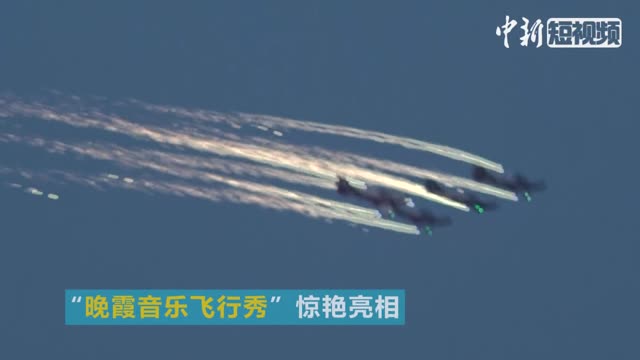Kim Jong Un, top leader of the Democratic People's Republic of Korea (DPRK), said his country will openly close its main nuclear test site in May, and showed expectations for a summit meeting with U.S. President Donald Trump, the Blue House of South Korea said Sunday.
Yoon Young-chan, senior press secretary for South Korean President Moon Jae-in, told a press briefing that during the April 27 summit, Kim told Moon that he will shut down the nuclear test site and show the process to the world.
Kim said he will invite experts and reporters of South Korea and the United States to the DPRK for the transparent shutdown. Pyongyang conducted all of its six nuclear tests in the Punggye-ri test site in northeastern DPRK.
Moon and Kim held the third-ever inter-Korean summit in the South Korean side of the border village of Panmunjom. Kim became the first DPRK leader to step onto South Korean soil since the end of the 1950-1953 Korean War.
After the summit, they confirmed a common goal of the complete denuclearization on the Korean Peninsula, and agreed to have multilateral talks, including China and the United States, to declare an end to the Korean War and alter the current armistice agreement into a peace treaty by the end of this year.
The peninsula remains technically at war as the war ended with armistice, not with peace treaty.
Kim told Moon that the Punggye-ri test site is in a good shape, rebutting the contention by some media that the DPRK would close the already collapsed nuclear test site.
Moon welcomed Kim's decision to openly shut down the nuclear test site, agreeing to discuss when to invite experts and reporters of South Korea and the United States to the DPRK after the DPRK side completes preparations for the closure.
Kim told Moon that the United States will realize, after holding talks with Pyongyang, that the DPRK is not a country to use its nuclear weapons toward South Korea, the Pacific Ocean, or the United States.
The DPRK leader said his country has no reason to live with difficulty because of the nuclear program when it meets the United States frequently and build mutual trust to promise the end to the Korean War and non-aggression.
The summit between Kim and U.S. President Donald Trump is forecast to be held in May or early June.
Kim told Moon that there will be no repetition of war on the peninsula, strongly affirming that there will never be any use of force.
In a separate press briefing, Moon's spokesman Kim Eui-kyeom said the South Korean president had a telephone conversation with Trump for 75 minutes from 9:15 p.m. local time Saturday to exchange views over the result of the inter-Korean summit.
Trump congratulated the successful Moon-Kim summit, while Moon expressed gratitude for Trump's strong support that led to the successful inter-Korean summit.
Trump said confirming the goal of making a nuclear-free Korean Peninsula through the complete denuclearization was very good news to the two Koreas as well as to the entire world. He expressed his support to the agreement by Moon and Kim to declare an end to the Korean War.
Moon and Trump exchanged opinions on ways to successfully hold the DPRK-U.S. summit, agreeing to continue close consultations in a bid to reach an agreement on the summit on detailed ways to realize the complete denuclearization of the Korean Peninsula.
Regarding the timing of the DPRK-U.S. summit, Moon and Trump shared a view that it should be held at an earliest possible date to maintain the momentum of the successful inter-Korean summit. They also discussed the possible DPRK-U.S. meeting locations, reducing candidate sites to two to three places.
Moon also had a phone dialogue for 45 minutes from 10 a.m. local time Sunday with Japanese Prime Minister Shinzo Abe to explain and share the results of the inter-Korean summit.
At the summit, Moon relayed Abe's willingness to talk with Pyongyang and normalize Japan-DPRK relations to the DPRK leader. In response, Kim told Moon that his country was ready to talk with Japan at any time.










